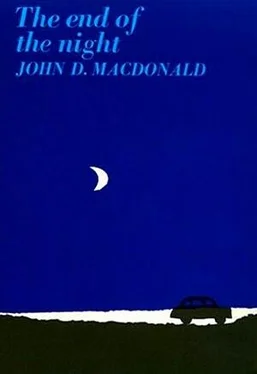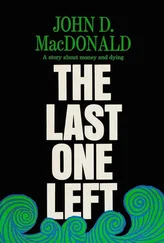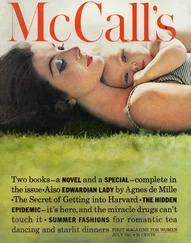So now, I thought, we add rape to the list. After Horace, it was about as serious as disorderly conduct. After Horace there was no worse place you could go.
I slept again. I remember waking up when Shack and Nan were sleeping. Sandy was pushing the Chev hard. I saw the glow of the dashlights against the small round knob of muscle at the corner of his jaw. The dark land wheeled by. He was singing. He sang that part that comes after you finish singing “I’ve been working on the railroad.” But he sang only one part of the ending, over and over. “Fee fie fiddly-I-oh, fee fie fiddly-I-oh, oh, oh, oh. Fee fie fiddly-I-oh, fee fie fiddly-I-oh, oh, oh, oh.” Over and over, endlessly. Listening, I realized I had heard him doing it before. Now it has become a part of all the memories of that time. The night and the running roar of the car, and Sandy’s voice, like the sound track of an art movie.
Sandy shook me awake in the predawn light. We were parked outside the office of a motel near Tupelo, Mississippi. “We got to have the services of the clean American yout’,” he said, “he who by virtue of his shining countenance is above suspicion. Rise and give me that scout master beam, Kirboo.”
After I got out and yawned and rubbed my face and stretched, I was able to be the responsible errand boy. The red neon vacancy sign was lit, and a light over the night bell. After three long rings I heard somebody stirring. A very pregnant dough-faced blonde in a red satin housecoat opened the door, stared stupidly at me and said, “Yah?”
I signed us up. Mr. and Mrs. Ivan Sanderson, Mr. Kenneth Tynan and Mr. Theodore Sturgeon. It shows poverty of invention, but I plead sleepiness. Much later this gave the prosecuting attorney a wonderful opportunity to display his considerable talent for sarcasm.
I paid her eighteen dollars for two twin-bed doubles. It was a fraud motel, glossy and landscaped on the outside, full of borax furniture and junk plumbing on the inside. I almost fell asleep standing up in the cranky shower. By the time I got into bed, Hernandez was snoring like a snare drum. It didn’t bother me a bit.
We were back on the road just as the sun went down. Sandy had doled out pills which lifted us up and out and away, glowing with induced joy, floating on numbered clouds, making bad jokes. Even that tension between Shack and Nan was gone, and they were unexpectedly animated. She sang some dirty little French songs a sculptor had taught her, her voice husky and untrue. Sandy did a long imitation of Mort Sahl.
But we were on our way through Nashville. I am not going to write the Nashville episode into this record. The newspaper did enough chop-licking over it. It was a sick, dirty business, pointless, cruel and bloody. This is, I suspect, as close as I can come to apology. I cannot say that the business of Horace Becher had any particular grace or style. But it had a flavor of some kind that the Nashville affair did not. The Nashville affair was symptomatic of sickness and desperation. I took part in it directly. From then on Sandy dropped the “college man” routine. He brought it up one more time after that, during the Helen Wister thing, but that was all. In Nashville I won my dirty spurs.
Also, in Nashville, I learned something about us, the four of us. I learned that we were going to be caught. I had been thinking that we might get away. We might get to New York and split up. But Nashville demonstrated that we weren’t going to let ourselves get away. When things started looking too easy, we would compulsively compound our problem and intensify the search. Even if Sandy had not dropped and lost Horace Becher’s pistol at the scene of the killing, I suspect the two would have been tied together. But he practically handed it to them, even though they took a long time to check it out. His losing it there was part of that same compulsiveness too, I believe.
Nashville was a pointless gesture of hostility, a dirty word yelled at the world. It was without style or meaning. Pigs are slaughtered with more dignity. After Nashville we were committed all the way. Even Sandy was slightly chastened. We discussed splitting up, and said it was a good idea, and we would split up later. But I think we all knew we’d never get the chance, and, in some obscure, perverse way, didn’t want the chance.
Auto theft, rape, kidnap, murder. They were big words. I couldn’t make them real in my head. They were things other people did. The things I did were different, because I was Kirby Palmer Stassen, unique. For me the words were different. I was not engaged in a career of crime; I had embarked on a program of social experimentation. After it was all over, I would lecture to thoughtful groups, electrifying them with my pertinent observations on the meaning of life and the meaning of death.
When we had tumbled back into the car in such great haste, Nan and I had gotten into the back seat. I think we must have been twenty miles from Nashville when she did a curious thing. I think she knew from my silence that I was deeply troubled, and it is even possible that in the shadowy recesses of her spirit there was the dim urge to give comfort. She picked up my hand, my right hand, reaching across me to take me by the wrist, and she pulled my hand over and slipped it into the V of her blouse and pressed it tightly against her warm, scanty breast. The slight stir of the nipple against my palm was as distasteful as though I trapped some sluggish insect there and it moved slowly in panic. And then I remembered, too vividly, the fatal thing my hand had done. My window was halfway down. I pulled away from her, found the electric button that put it down the rest of the way, leaned far out and gouted vomit into the soft, warm night. The hard wind snapped at my cropped hair and whipped the tears out of my eyes. When I sat back I was weak and dizzy. No one made any comment. Shack dug the final bottle of tequila out of Sandy’s rucksack. Sandy didn’t want any. Shack and Nan and I passed it back and forth until we had killed it. Nashville then was much more vague, but I knew it would be back, unbearably vivid. I knew that that final scream would sound forever in a closet in the back hall of my brain.
The reverend came again today. As time grows shorter they seem to be sicking him onto me with increasing frequency. The governor has signed the execution warrant. Today I told him I was far too busy to grant him the standard courtesy of ten minutes of my time. I said I wanted to be certain I would complete this journal. He looked at me severely and told me it would be more fitting if I devoted the time to the nurture of my immortal soul. I told him that I agreed heartily, and I was looking for my immortal soul in my own fashion, and half expected to find it somewhere on these pages, and it would probably be a gray, sly little fellow in a gnome hat, peering maliciously out from behind a bad word. He went away, shaking his ecclesiastical head.
It is curious to note that during the weekend recess which was followed almost immediately by the summations of the prosecution and the defense and the judge’s charge to the jury, Riker Deems Owen, the attorney for the defense, used precious time and energy in the preparation of his final informal memorandum on the Wolf Pack Case.
Certainly the same time devoted to his summation would have resulted in a more effective job, but it is possible that Owen realized by that time, as did most of the perceptive spectators and communications people, that he had already lost his case. Even with a lost case, however, it would seem more in keeping with Owen’s evident egomania and distorted sense of history to have worked up a summation which he would hope would rank with the deathless ones of Darrow, one of his household gods.
Читать дальше







![Джон Макдональд - The Hunted [Short Story]](/books/433679/dzhon-makdonald-the-hunted-short-story-thumb.webp)


